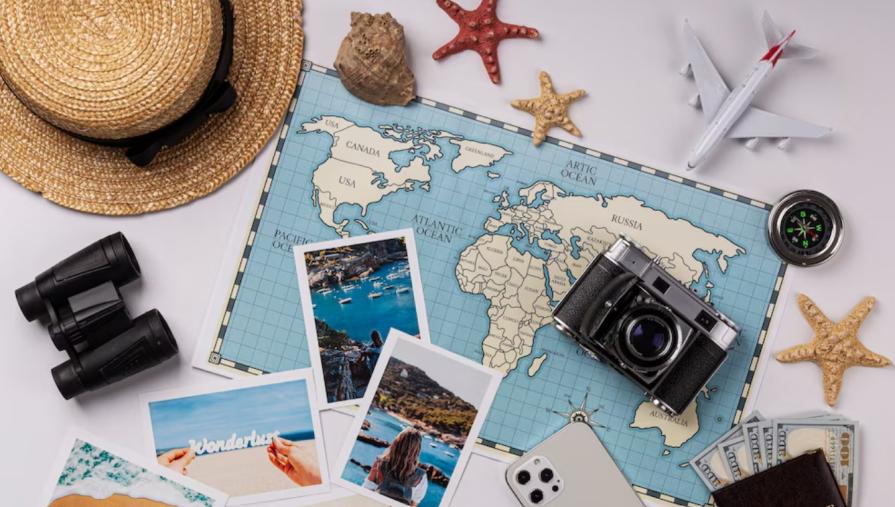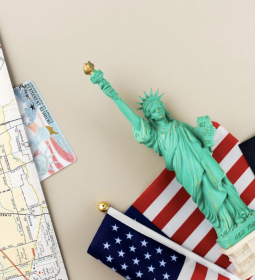The world is changing, human habits are changing, and travel standards are also subject to change from year to year. We offer to your attention our forecast of how travel will change in 2025, what to choose, what to prepare for and what to bet on so as not to be left out of work.

Summer will not end soon
The planet is warming rapidly, and climate change is becoming more and more noticeable. Scientists warn that next year promises to break the temperature records of the past again, especially in southern regions such as Greece and Turkey. In the context of global warming, the usual routes and travel times will inevitably change.
Forecasts show that the "summer season" will extend for a longer period - it will begin in March-April and last until October. At the height of summer, in June, July and August, tourists will prefer the northern regions, leaving the traditional "hot" destinations for trips in the cooler seasons, at the "borders" of the seasons. The trend will be travel to cool countries, where new activities will appear, such as water activities on lakes, ice therapy and meditation on the snow.
However, there are classics outside the risk zone. Experts are confident that Spain, France and Italy will continue to attract tourists all year round thanks to their rich cultural and gastronomic offerings. However, travelers will begin to choose lesser-known locations in these countries, discovering new, not so popular, but no less interesting places.
By the way, airlines have already begun to adapt to the new conditions: seasonal flight programs are being extended, new destinations are being opened to meet changing demand, and there is active advertising.
Long and careful planning
The cost of living is skyrocketing, and the reasons for this are numerous: pandemic, inflation, migration, armed conflicts... As a result, people are increasingly coming to the conclusion that spending needs to be approached with much greater caution. This also applies to travel: they are becoming more and more thoughtful and economical.
Many travelers already start planning trips months or even a year in advance. They carefully search for the best deals, choose low-cost flights, find affordable accommodation and explore new destinations that do not require high costs. All this is accompanied by the active use of loyalty programs and bonus systems.
These trends are especially noticeable among representatives of Generation Z, the so-called "financial influencers". These young people are not afraid to openly discuss financial priorities, telling them what they are willing to spend money on and what they prefer to give up. They actively share their experience on how to reduce costs, avoid rash purchases and live on minimal means.
Bloggers also actively support this trend by publishing tips on budget travel. There is already a wealth of information on social media, especially TikTok, on how to find great deals from airlines and hotels, which days are best to book, and how to use different price comparison apps. These tips help travelers save money without giving up the pleasure of discovering new places.
We are leaving for less popular destinations
Everyone is tired of the phenomenon of overtourism: both locals and travelers themselves. Somewhere they introduce fines for tour operators or quantitative restrictions, somewhere they get by with tourist taxes, but in Barcelona and Venice it helps so-so. Therefore, if the authorities do not cope with this problem, we are responsible for changing the situation. And many have already realized this – we hope you do too.
According to a survey by British Airways Holidays, more than 70% of travelers expressed a willingness to travel to less popular destinations; This trend is equally manifested among both young and older generations.
The bottom line is simple: no one is asking you to completely abandon trips to cities like Barcelona, Venice and other tourist metropolises, but it is important not to make them the main destination of every trip: there are many other beautiful cities worth visiting. Take a little time to explore and you'll have a unique experience in less popular and crowded places, which are also often more affordable.
Using TikTok
TikTok isn't just a platform for entertainment and "time killing," but it's also an incredibly useful source of information that often surpasses search engines and even ChatGPT. Imagine: millions of people around the world are exploring new places and sharing experiences through videos and posts available "for free, without registration and SMS".
If you haven't tried using TikTok to find information yet, we highly recommend it. For example, type in "unusual bars in Paris" or "where to go from Barcelona" and be amazed at how many hidden gems there are. These small discoveries will fill your map with new pins and inspire unusual routes.
Resting seriously
The pandemic has brought one great innovation to our lives — remote work: now many people are able to travel non-stop, taking only a laptop with them and providing themselves with access to a stable Internet. However, the life of digital nomads has its own complexities.
Working outside the office often blurs the lines between personal time and professional responsibilities. Of course, it's great that you can take a break at any time and finish work later, but there's a downside: the morning starts with checking emails, not breakfast; We stay in touch even during non-working hours, and as a result, we forget about proper rest. Therefore, experts predict a new trend — offline vacations, or digital detox, when travel takes place without gadgets.
In the coming years, travelers, especially digital nomads, will be forced to take their holidays more seriously. If you go on vacation, then you really disconnect from work and devote time to full recovery.
Traveling with Netflix and Prime
Studies show that the most influential trendsetters of this season were not tiktokers at all, but TV shows and films. More and more people are choosing places to travel that they saw on Netflix, Amazon Prime, or another streaming service. Such trips become especially memorable, because they allow you to literally live the very events that you followed with passion on the screen.
Travel companies actively support this trend by creating entire trips based on popular shows. For example, Visit California offers a tour inspired by the movie Barbie, and Dharma has organized tours dedicated to the TV series Emily in Paris.
In the coming year, countries like France, Italy, South Korea, Spain, and Greece are likely to be at the top of the list, thanks to loyal fans of Netflix and other streaming platforms.










